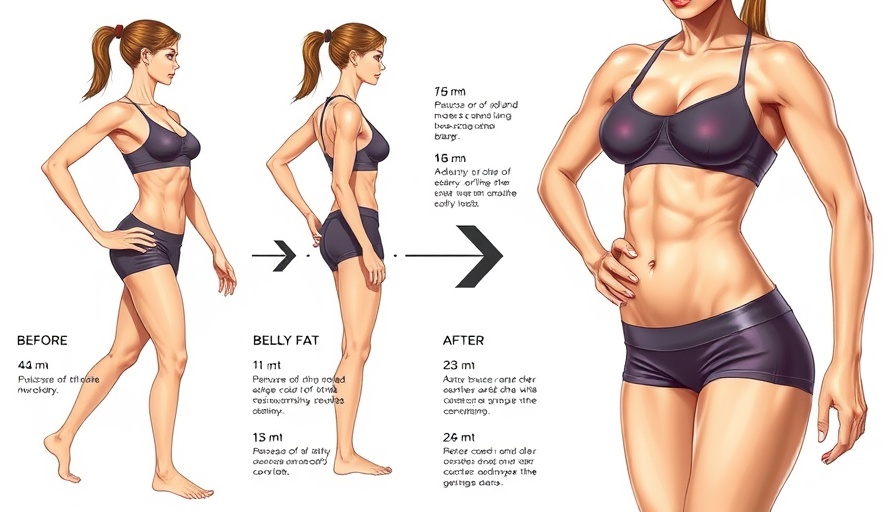
Understanding Bloating: The Unseen Culprit in Your Diet
Every fitness enthusiast has experienced it: that uncomfortable, bloated feeling that seems to crop up unexpectedly. The irony? Some of the healthiest foods on your plate could be responsible for your discomfort. It's not just junk food that leads to bloating; rather, innocent-seeming staples like beans, cruciferous vegetables, and even dairy can cause havoc in your digestive system. Let’s delve into the surprisingly sneaky foods that may be behind this widespread issue.
Top 10 Foods That May Cause Bloating
The following items can significantly contribute to bloating, and it's crucial to be mindful of how they fit into your diet:
Beans and Legumes: Packed with fiber and protein, beans are a staple in healthy diets, yet they can produce gas and bloating due to oligosaccharides, which are hard for the body to digest.
Dairy Products: Many people are lactose intolerant, meaning that lactose in milk, cheese, and yogurt can lead to uncomfortable bloating.
Cruciferous Vegetables: Broccoli, cauliflower, and Brussels sprouts are high in fiber, promoting digestive health but often leading to gas buildup if consumed in excess.
Carbonated Beverages: The carbonation introduces gas into the digestive system, contributing to a bloated feeling.
Salty Foods: Foods high in sodium can cause water retention, which translates to bloating and discomfort.
Sugar Alcohols: Common in sugar-free products, they can disrupt digestion for many and lead to bloating.
Artificial Sweeteners: Difficult to digest for some, these sweeteners can exacerbate bloating and gas.
Processed Foods: With their high content of preservatives, they can negatively affect gut health, leading to bloating.
High-Fat Foods: While fats are necessary for a balanced diet, too much can slow digestion and contribute to feeling bloated.
Spicy Foods: Spices can irritate the gut lining, potentially leading to discomfort and bloating.
Practical Tips for Immediate Relief
So, what can you do to debloat quickly? Consider trying ginger tea or peppermint tea, both known for calming the digestive tract. Additionally, staying hydrated and incorporating light activities like walking can aid digestion and reduce bloating. For those seeking a more targeted approach, supplements like 'Bloat Be Gone' capsules can be beneficial. With a blend of digestive enzymes and herbal ingredients like ginger and peppermint, these products can help alleviate bloating effectively.
The Role of Fitness Professionals in Nutritional Awareness
As gym owners and fitness trainers, understanding these dietary pitfalls can drastically improve your clients' experiences. Bloating can lead to discomfort, impacting workout performance and motivation. By educating clients about these foods, you can help them adjust their diets to maximize their health benefits while minimizing discomfort.
The fitness community has the potential to change the perception of nutritional health. It's time to advocate not just for working out, but also for smart eating habits that foster overall wellness. Let's emphasize the balance between enjoying nutritious foods and recognizing their impact on our bodies.
Final Thoughts and Actions
Being mindful of what you eat is crucial, especially in the fitness world. Encourage your clients to take note of how certain foods affect their bodies individually. Facilitating discussions on these topics can empower clients to make informed dietary choices that enhance their fitness journeys to become more comfortable and effective. If bloating is a pressing concern, consider suggesting dietary adjustments or the use of supportive products that help mitigate discomfort.
 Add Row
Add Row  Add
Add 




Write A Comment